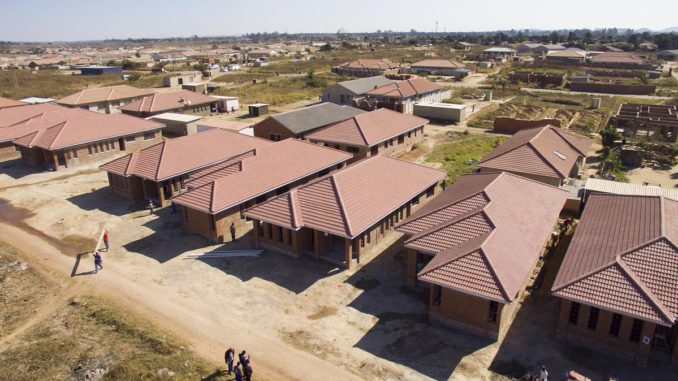
Nigeria is planning to build just about 2,000 homes this year, while the country needs at least 700,000 units annually to breach a huge housing deficit, PREMIUM TIMES can report today.
The World Bank estimates Nigeria’s housing deficit to be 17 million. This figure is increasing yearly by 20 per cent.
Hence, to bridge this gap, the World Bank recommends at least 700,000 units annually “to keep up with growing population and urban migration”.
But the Ministry of Works and Housing plans to construct just 2,383 units of housing in 2019 under the National Housing Programme in 36 states of the Federation and the FCT.
The proposal to construct the houses was presented by the Minister of Works and Housing, Babatunde Fashola, during his appearance before the Senate committee on housing Wednesday.
As of September this year, Mr Fashola said N19.8 billion has been released to the sector.
However, he added, a cumulative outstanding liability of the sector, from 2001 to 2017, stood at ₦78.2 billion.
Reducing Housing Deficit
A 2018 World Bank report “Nigeria Affordable Housing Project” says the biggest constraints to the country’s housing sector are “access to land, lack of infrastructure and service provision, difficulties with construction permitting, high cost of development finance, high construction costs, and lack of skilled labor.”
“On the demand side, major constraints
include access to end user financing, lack of disposable income for housing, and the cost and time of foreclosing.”
The report adds that the private sector is critical in making housing available and affordable in Nigeria, as the government cannot do it alone.
“The government does not have the resources to close the monumental deficit of affordable housing. Property developers cite the need for public support to address the demand and supply market failures before private capital will come in. Demonstrating a successful (and profitable) model to the private sector will be critical to unlock private investment,” the report notes.
Fashola’s projects
Mr Fashola also said the ministry plans to prioritise the completion of ongoing constructions at the federal secretariats in Anambra, Bayelsa, Ekiti, Nasarawa, Osun and Zamfara.
Other projects include: Design and installation of Solar power PV Microgrid System and Energy Retrofitting of the Federal Ministry of Works and Housing Headquarters Mabushi Abuja.
He said: “There is need to meet up with outstanding international Organisations commitment to Shelter Afrique Programme of which Nigeria is a major player.”
He added that the ministry is faced with paucity of budgetary provisions to complete its projects.
“The major factor affecting this sector of the ministry (on the) overall issue of timely completion of projects on schedule or ahead of schedule is insufficient budgetary provision to sustain annual cash flow requirements to meet desired targets as stipulated in the planning stages of all projects,” he said.
2019 Budget Performance
Mr Fashola said ₦428.4 billion was appropriated for capital projects in the three sectors of the ministry when it covered power, works and housing in the 2019 fiscal year.
Capital release stood at ₦83.7 billion. Overhead cost stood at ₦118.9 million and personnel cost at ₦9.5 billion for the three sectors, the minister added.
The minister also said the ministry generated an IGR of N1.6 billion from January to September, 2019.
2020 Proposal
Meanwhile, about N60.8 billion was proposed for capital expenditure in the housing sector of the Ministry in the 2020 appropriation.
Overhead cost was put at N118.9 million and personnel cost at N4.4 billion.
END

Be the first to comment